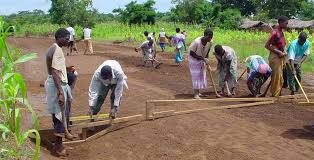
Transport
MASAF Public Works Programme to start in April.
February 27, 2020 / Edith Chirwa

The Ministry of Finance, Economic Planning and Development says it will in April this year start implementing the Enhanced Public Works Pilot Programme (EPWP) under Phase IV of Malawi Social Action Fund (MASAF) project.
The Ministry will implement the eight months’ programme through the National Local Government Finance Committee.
Executive Director of the National Local Government Finance Committee Alufeyo Banda explains in a Press Statement that Malawi Government will implement the public works programme with funding from the World Bank and the German Government through the German Technical Cooperation(GIZ).
Banda states that the objective of EPWP is to enhance the effectiveness of the regular public works programme which was implemented in 35 Local Authorities in the country by addressing key challenges faced during the implementation works.
He says some of the challenges include; lack of capacity for frontline staff which affected their ability to deliver quality supervision, non-adherence to sector norms and standards which led to poor quality community assets, lack of community ownership for public works programme assets and inadequate supervision and monitoring of resources by council officials.
The public works programme will be piloted in 10 districts of Blantyre, Balaka, Chiradzulo, Chitipa, Dowa, Karonga, Kasungu, Lilongwe, Nkhotakota and Phalombe.
In selecting the districts, the pilot considered several factors including poverty levels and food security, degree of land degradation and availability of the Unified Beneficiary Registry (UBR) data.
“The targeted number of the EPWP is 10,000 participants in a phase in all the 10 districts with 1,000 participants per district. The 1,000 will be selected from 5 micro-catchments in each of the 10 districts with every micro catchment not exceeding 230 acres,” Banda says.
The EPWP will focus on land resources conservation as its aim is to contribute towards conserving natural resources.
Participants will work for 12-days a month and receive a safety net wage paid bi-monthly.
In addition, 4000 beneficiaries will be linked to sustainable livelihoods interventions to enhance their capabilities.
“Sustainable livelihoods interventions will be implemented through a strategic linkage to the Community Savings and Investment Promotion Programme (COMSIP) and the District Community Development Office in the pilot districts,” says Banda.































